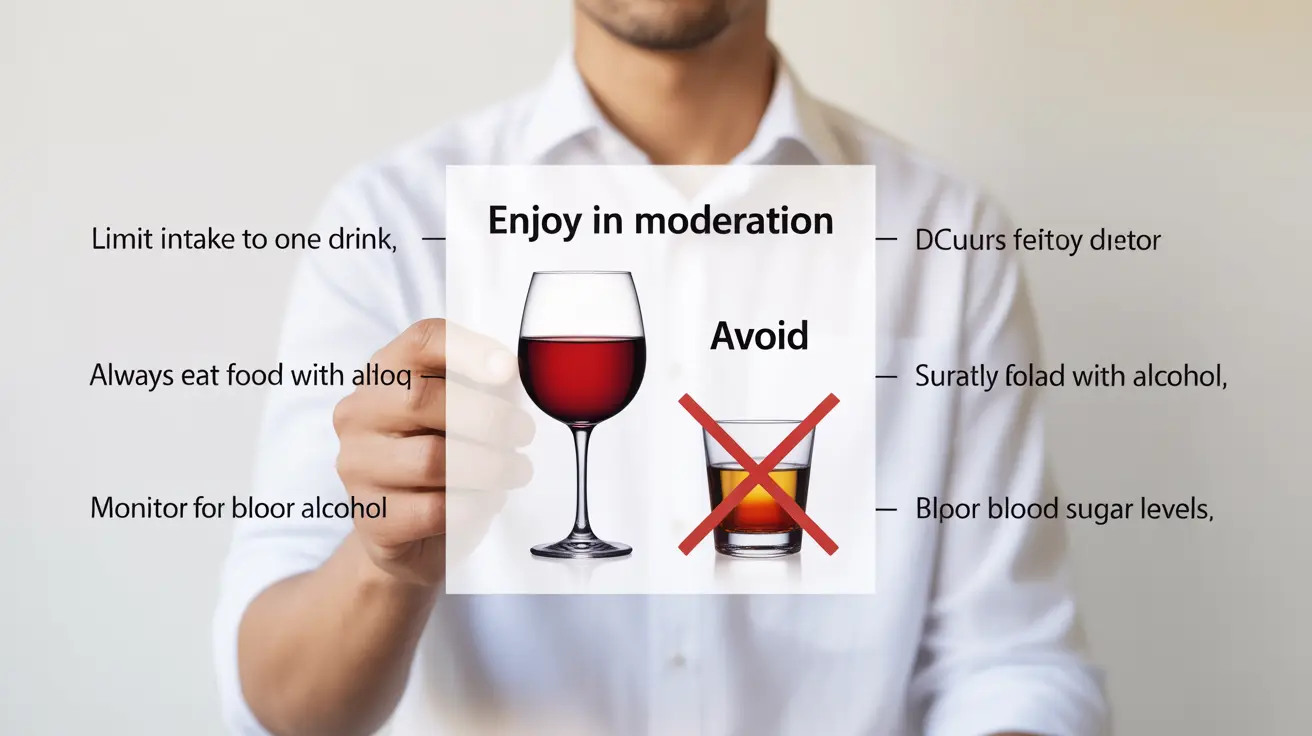Living with diabetes requires careful management of diet and lifestyle choices, and many people wonder about the safety of consuming alcohol. Understanding how alcohol affects blood sugar levels and knowing the right precautions can help people with diabetes make informed decisions about drinking.
This comprehensive guide explores the relationship between diabetes and alcohol consumption, providing essential information for safe drinking practices while managing diabetes effectively.
How Alcohol Affects Blood Sugar in Diabetics
Alcohol can significantly impact blood sugar levels in people with diabetes. When your liver processes alcohol, it becomes less efficient at releasing stored glucose, which can lead to unexpected drops in blood sugar levels. This effect can last for several hours after drinking.
The risk of hypoglycemia (low blood sugar) is particularly high for people taking insulin or certain diabetes medications. This risk increases the longer alcohol remains in your system.
Safe Drinking Guidelines for People with Diabetes
If you have diabetes and choose to drink alcohol, following these essential guidelines can help minimize risks:
- Always drink in moderation (1 drink per day for women, up to 2 for men)
- Never drink on an empty stomach
- Check blood sugar levels before, during, and after drinking
- Wear diabetes identification when drinking
- Ensure someone with you knows you have diabetes
Best and Worst Alcoholic Drinks for Diabetics
Better Choices
Some alcoholic beverages have less impact on blood sugar levels:
- Light beer
- Dry wines
- Spirits with sugar-free mixers
- Hard seltzers with no added sugars
Drinks to Avoid
Certain alcoholic beverages can cause significant blood sugar spikes:
- Sweet wines
- Regular beer
- Cocktails with sugary mixers
- Liqueurs
- Pre-mixed alcoholic beverages
Eating and Drinking Safely
Food plays a crucial role in safe alcohol consumption for people with diabetes. Eating before or while drinking helps prevent dangerous blood sugar drops. Choose foods that contain both carbohydrates and protein to help stabilize blood sugar levels.
Good snack options while drinking include:
- Cheese and crackers
- Mixed nuts
- Greek yogurt with berries
- Turkey sandwich
- Hummus with vegetables
Medication Considerations and Health Risks
Alcohol can interact with various diabetes medications, potentially leading to adverse effects. It's essential to understand these interactions and discuss them with your healthcare provider. Common diabetes medications that may interact with alcohol include metformin, insulin, and sulfonylureas.
Long-term alcohol use can also increase the risk of diabetes-related complications:
- Nerve damage
- Eye problems
- Liver disease
- Cardiovascular issues
- Poor blood sugar control
Frequently Asked Questions
Can people with diabetes safely drink alcohol, and what precautions should they take?
Yes, people with diabetes can drink alcohol in moderation with proper precautions. Key safety measures include eating before drinking, monitoring blood sugar levels regularly, and carrying diabetes identification. Always consult with your healthcare provider about specific guidelines for your situation.
How does alcohol affect blood sugar levels in people with diabetes?
Alcohol can cause blood sugar levels to drop dangerously low because it interferes with the liver's ability to produce glucose. This effect can last for several hours after drinking and may be especially dangerous when taking diabetes medications.
What types of alcoholic drinks are best and worst for managing diabetes?
The best choices are dry wines, light beers, and spirits with sugar-free mixers. Avoid sweet wines, regular beers, and cocktails with sugary mixers, as these can cause significant blood sugar spikes.
Why is it important for diabetics to avoid drinking alcohol on an empty stomach?
Drinking on an empty stomach increases the risk of hypoglycemia because there's no food to help stabilize blood sugar levels. Food helps slow alcohol absorption and provides necessary glucose to prevent dangerous blood sugar drops.
How can drinking alcohol impact diabetes medications and long-term health risks?
Alcohol can interact with diabetes medications, potentially causing adverse effects or reducing their effectiveness. Long-term alcohol use may increase the risk of diabetes complications, including nerve damage, eye problems, and cardiovascular disease.




